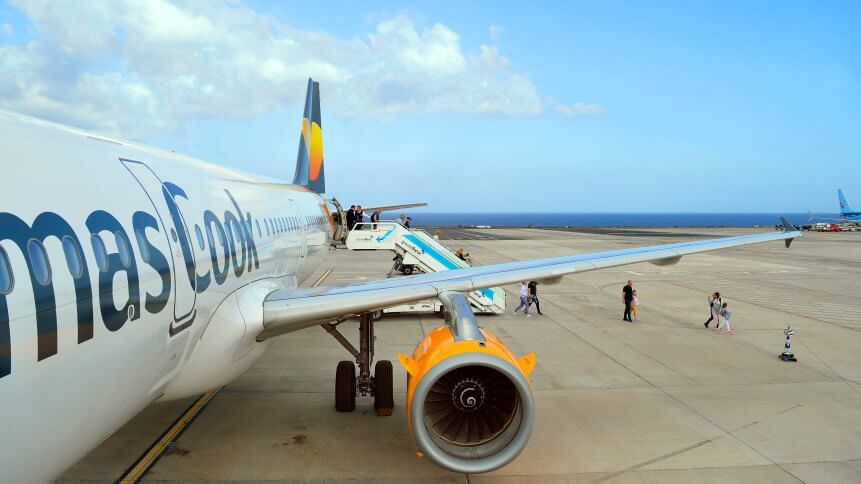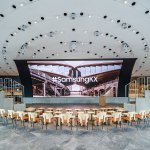Thomas Cook failed to adapt to the experience economy

A few years ago, Adobe led the charge forward in warning businesses how the rise of the experience economy will transform multiple industries. Many dismissed the warning and carried on regardless with the old way of working on which they built their success. But the world has changed.
Those that failed to adapt to the transition from analogue to digital and understand that experiences have become more important than the transaction itself are starting to pay a heavy price. The travel industry is a perfect example of how a failure to evolve with customer’s expectations and habits will end in disaster.
For 178 years, Thomas Cook shaped the way we travel and how we saw the world. But after a slow and painful decline, the ailing travel firm was finally put out of its misery this week putting 21,000 people out of work. The Thomas Cook group seemed to blame a hot British summer, Brexit and just about everything but themselves for its downfall.
We are sorry to announce that Thomas Cook has ceased trading with immediate effect.
This account will not be monitored.
Please visit https://t.co/4lGVHZm2jQ for further advice and information.#ThomasCook pic.twitter.com/NJ7vi4UJZ4
— Thomas Cook Airlines (@TCAirlinesUK) September 23, 2019
However, the reality is customers fell out of love with package holidays a long time ago. Instagram feeds now fuel our wanderlust and ensures our bucket list is continually updated. Cheap flights and hotel deals are all just a search away and can be put together in minutes from the comfort of our homes.
The arrival of Airbnb Experiences in 2016 also highlighted how travellers now expect more than just somewhere to sleep. Tours and classes delivered directly by locals offer a much more authentic experience for those wanting to learn and contribute directly to the local community they are visiting.
Experiencing destinations like a local and going off the beaten track is what excites the modern traveller and rising number of digital nomads too. Culture Trip is a digital success story that also highlights how audiences’ needs have evolved over the last five years.
YOU MIGHT LIKE

Offer real experiences, not digital substitutes
In 2014, Culture Trip was reaching around 132,000 visitors a month. In 2018 this rocketed to 12.5 million. On Facebook, the company had a respectable 330,000 Facebook fans in 2016, but it is now close to hitting 7 million.
In one hand, we have witnessed how the Thomas Cook group was slow to adapt to a digital world. By falling behind the pace with technological change, the group has appeared very old fashioned and ended up paying the ultimate price. But on the other hand, sites such as Culture Trip saw the thirst for personalized, authentic experiences and social media first strategies as an opportunity.
Whatever industry you serve, the reality is that in the eyes of your customer, your products and services all look remarkably similar to what they have seen before. The experience that they have with your company will be the differentiator. In an always-on world, they will also expect you to deliver that experience.
As a global community, we are creating 2.5 quintillion bytes of data every minute across a myriad of touchpoints. Emerging technologies such as AI and machine learning are making it possible for businesses to unlock valuable insights required to create unique experiences.
Delivering a memorable experience is one part of the equation. Content that inspires your audiences and leaves audiences feeling compelled to hit the share button is the sweet spot that many are now chasing.
If you take a look around, people are all face down in their phones liking and sharing the experiences and highlight reels of the people they follow. Some quick thinking marketers are rising to this challenge by mixing analog billboards to create Instagrammable moments.
The success of escape rooms and secret cinemas are all playing a part in building the experience economy. Almost every conference or event you attend will also feature an area designed to encourage you to take a photo and share on your Instagram feed. But what happens to a business that fails to move with these trends?
These experiences are creating new levels of expectations both in and outside of the office. Have you invested your resources into creating experiences for your past, present, and future customers? Do you regularly create shareable content that meaningfully connects with your audience?
If you answered no to any of the above, it’s time to adjust your mindset and the culture within your organization as a priority. By dismissing social media as a waste of time or thinking that AI and machine learning are nothing but overhyped buzzwords, you are running the risk of looking out of touch and getting left behind.
Look at your own lifestyle and the experiences you felt compelled to share with your family, friends, and online connections. As an employee, how do you rate your experience in the workplace? The experience economy is all-encompassing and will also play a significant role in keeping hold of the top talent in your organization too.
Thomas Cook has joined a long list of companies that failed to innovate such as Kodak, Xerox and Blockbuster Video. No matter how big a brand is, there is no such thing as everlasting success. But how many more of these cautionary tales must we hear before companies finally accept that being innovative and adapting to changes that affect their business is crucial to their future success?








